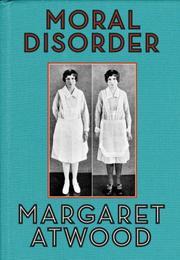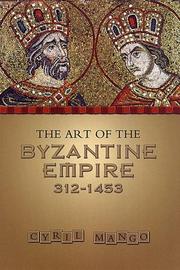| Listing 1 - 4 of 4 |
Sort by
|

ISBN: 0385503849 9780385503846 Year: 2006 Publisher: New York Nan A. Talese
Abstract | Keywords | Export | Availability | Bookmark
 Loading...
Loading...Choose an application
- Reference Manager
- EndNote
- RefWorks (Direct export to RefWorks)
Book
ISBN: 0773555293 0773555285 9780773555280 9780773555297 9780773554535 9780773554542 Year: 2018 Publisher: Montreal
Abstract | Keywords | Export | Availability | Bookmark
 Loading...
Loading...Choose an application
- Reference Manager
- EndNote
- RefWorks (Direct export to RefWorks)
In the first half of the twentieth century, a number of Canadian authors were revealed to have faked the identities that made them famous. What is extraordinary about these writers is that they actually "became," in everyday life, characters they had themselves invented. Many of their works were simultaneously fictional and autobiographical, reflecting the duality of their identities. In Literary Impostors, Rosmarin Heidenreich tells the intriguing stories, both the "true" and the fabricated versions, of six Canadian authors who obliterated their pasts and re-invented themselves: Grey Owl was in fact an Englishman named Archie Belaney; Will James, the cowboy writer from the American West, was the Quebec-born francophone Ernest Dufault; the prairie novelist Frederick Philip Grove turned out to be the German writer and translator Felix Paul Greve. Chief Buffalo Child Long Lance, Onoto Watanna, and Sui Sin Far were the chosen identities of three mixed-race writers whose given names were, respectively, Sylvester Long, Winnifred Eaton, and Edith Eaton. Heidenreich argues that their imposture, in some cases not discovered until long after their deaths, was not fraudulent in the usual sense: these writers forged new identities to become who they felt they really were. In an age of proliferating cyber-identities and controversial claims to ancestry, Literary Impostors raises timely questions involving race, migrancy, and gender to illustrate the porousness of the line that is often drawn between an author's biography and the fiction he or she produces.
Book
ISBN: 1895411467 9781895411461 Year: 1983 Publisher: Winnipeg : Peguis Publishers,
Abstract | Keywords | Export | Availability | Bookmark
 Loading...
Loading...Choose an application
- Reference Manager
- EndNote
- RefWorks (Direct export to RefWorks)
Sisters --- Children of alcoholics --- Foster children --- Indians of North America --- Métis --- Soeurs --- Enfants d'alcooliques. --- Enfants placés --- Indiens d'Amérique --- Métisses --- Autobiographical fiction, Canadian. --- Fiction. --- Mixed descent --- Manitoba

ISBN: 0802066275 0802090125 9786611991678 1442683732 1281991678 9780802090126 9781442683730 9781281991676 9780802066275 6611991670 Year: 2006 Volume: 16 Publisher: Toronto
Abstract | Keywords | Export | Availability | Bookmark
 Loading...
Loading...Choose an application
- Reference Manager
- EndNote
- RefWorks (Direct export to RefWorks)
"Engaging current debates within the studies of life writing and of the nation-state, Writing the Roaming Subject focuses on a group of Canadian writers who pose questions about cultural difference and national identity while writing about their own lives and their own experiences of displacement. Joanne Saul uses the term 'biotext' to describe the unique form of writing that challenges critical practices regarding both life writing and immigrant and ethnic minority writing by blurring the borders of biography, autobiography, history, fiction, and theory, as well as poetry, prose, and visual representation."--Jacket.
Authors, Canadian --- Autobiographical fiction, Canadian --- Autobiography --- Canadian literature --- Ethnicity in literature --- #KOHU:CANADIANA --- 820-3 "19" --- 820 <71> --- 820-3 "19" Engelse literatuur: proza--20e eeuw. Periode 1900-1999 --- Engelse literatuur: proza--20e eeuw. Periode 1900-1999 --- 820 <71> Engelse literatuur--Canada --- Engelse literatuur--Canada --- Canadian literature (English) --- English literature --- Autobiographies --- Egodocuments --- Memoirs --- Biography as a literary form --- Canadian autobiographical fiction --- Canadian fiction --- Canadian authors --- History and criticism --- Minority authors --- Minority authors&delete& --- Technique --- Kiyooka, Roy --- Marlatt, Daphne. --- Ondaatje, Michael, --- Wah, Fred, --- Ethnicity in literature. --- Minority authors. --- History and criticism. --- Kiyooka, Roy. --- Art [Byzantine ] --- History --- Sources --- Englisch. --- Kanada --- Canada --- Dominion of Canada --- Puissance du Canada --- Kanadier --- Provinz Kanada --- 01.07.1867 --- -Canadian literature
| Listing 1 - 4 of 4 |
Sort by
|

 Search
Search Feedback
Feedback About UniCat
About UniCat  Help
Help News
News